
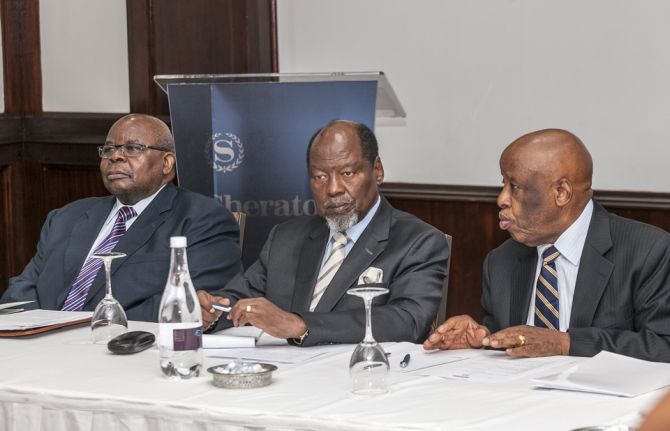
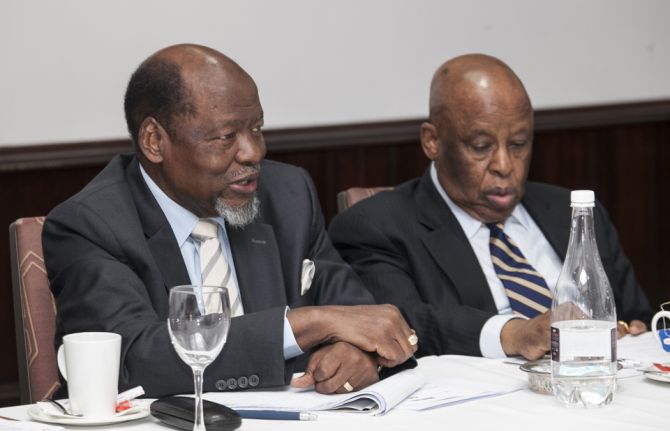
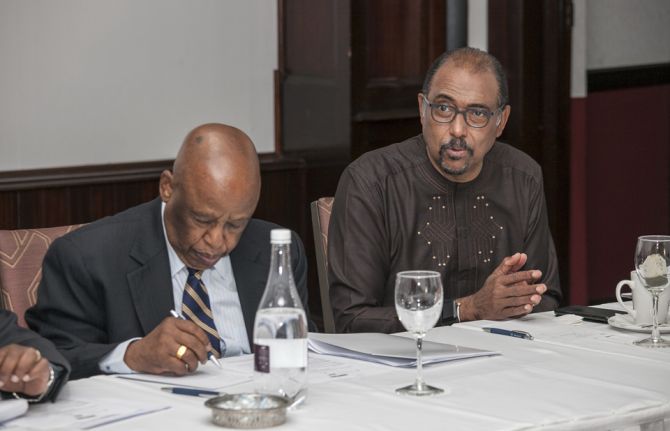
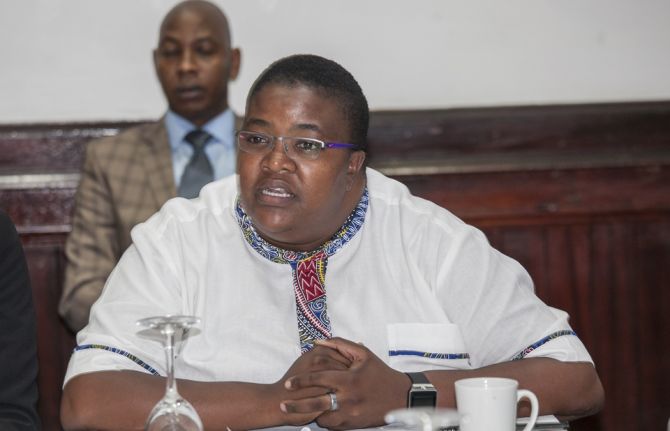
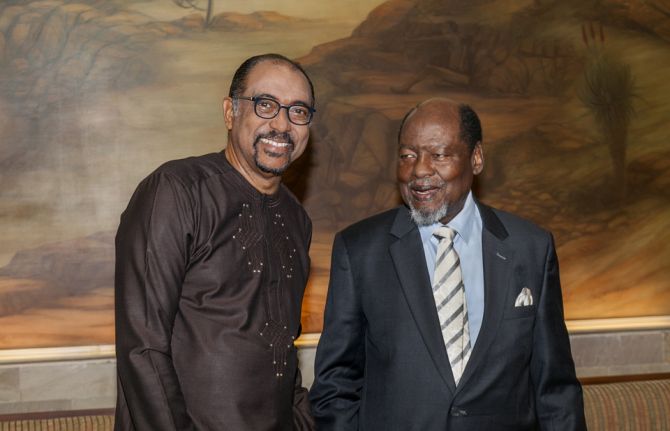
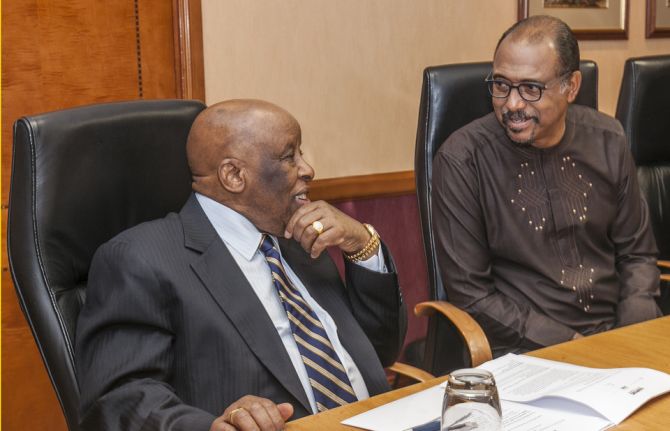
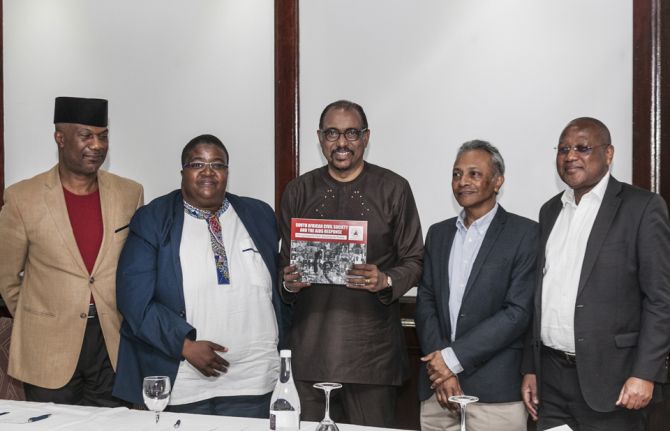
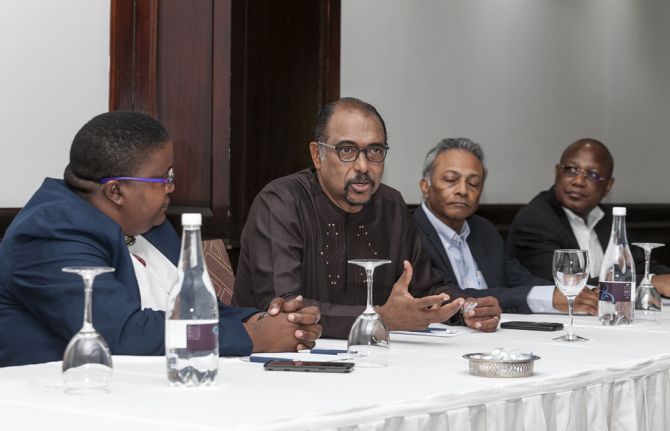
Update
Championing access to HIV services for key populations in Africa
03 April 2017
03 April 2017 03 April 2017The AIDS response in Africa has come a long way and the continent is seeing results in many areas, including the dramatic reduction in the number of babies being born with HIV and an equally dramatic increase in access to HIV treatment. Nevertheless, inequalities in access to health, especially for key populations and adolescent girls and young women, remain a major barrier to ending AIDS as a public health threat in Africa by 2030.
These issues were the focus of a high-level dialogue between the Champions for an AIDS-Free Generation in Africa, a distinguished group of former presidents and influential African leaders, UNAIDS Executive Director Michel Sidibé and civil society representatives in Pretoria, South Africa, on 30 March.
The Royal Commonwealth Society, which promotes the values of the Commonwealth of Nations, has found that 41 of its 53 member states criminalize consensual same-sex relationships in some way. Across these member states, many of which are in Africa, lesbian, gay, bisexual, transgender and intersex people face high levels of discrimination, harassment and violence in their everyday lives.
Adolescent girls face a higher risk of HIV infection, with those in the age group 15–19 being the only age group for which AIDS-related deaths are increasing in sub-Saharan Africa. In 2015, an estimated 64% of all adolescents aged 15–19 years living with HIV in the region in 2015 were girls.
Participants in the dialogue made it clear that removing barriers that are holding back progress in the AIDS response, such as punitive laws, prosecutions, policies and practices that block access to HIV services, is critical to reaching the people being left behind.
The round-table dialogue was convened by the Champions, the Royal Commonwealth Society, Access Chapter 2, the Kaleidoscope Trust and the African Think Tank on HIV, Health and Social Justice. It is one of the advocacy mechanisms and platforms that these partners will use to respond to these complex issues.
Quotes
“If ending AIDS by 2030 is to be realized, we have to see what we are not doing. We need to include everyone and leave no one behind in our HIV prevention and treatment efforts.”
“We need to combine the different solutions that we have for the AIDS response into a cross-cutting approach to achieve inclusiveness, social justice and conducive policies.”
“When we confront the realities of every citizen in our countries we must take rights, religion and culture into account when we have our conversations.”



